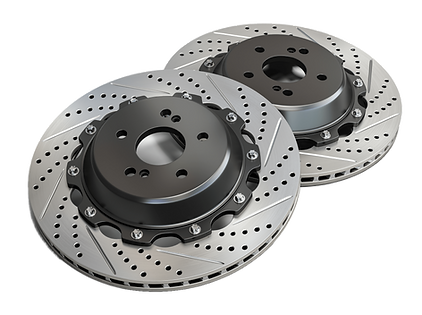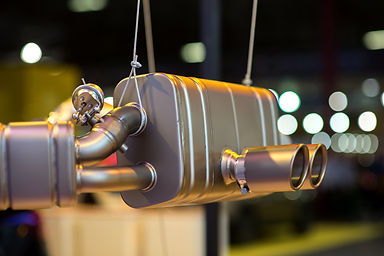Automotive Industry
// Fueling Mobile Innovation
Niobium is transforming the automotive industry by enabling the development of stronger, lighter materials that improve vehicle safety and reduce accident impact. Its role in stainless steels, power electronics, and casting is advancing the future of safer, more efficient, and greener vehicles. Incorporating Niobium into High-Strength Low-Alloy (HSLA) steels enhances yield strength, allowing for lighter vehicles without compromising strength. This not only improves safety but also lowers fuel consumption and reduces carbon footprints. Niobium also plays a key role in Press Hardening Steels (PHS), refining grain structures for stronger, more durable stamped parts. In Dual Phase steels, it boosts strength, ductility, and weldability, enhancing crashworthiness.

Niobium enhances the performance of stainless steels, meeting the evolving demands of the automotive industry. It is used in key parts like exhaust systems, fuel tanks for hybrid vehicles, door trims, and fuel cell bipolar plates. By adding Niobium, these components gain improved performance, reduced emissions, and longer lifespans. In cast iron applications, Niobium boosts cost-efficiency and improves thermomechanical properties, reducing corrosion and wear in brake discs and drums. This not only enhances performance across vehicle types but also lowers the material's carbon footprint. Additionally, in turbochargers, small amounts of Niobium improve mechanical and thermal properties, while increasing productivity and reducing scrap. Often overlook as an economic consideration, these turbochargers can save gas at the pump and enhance the efficiency of combustion engines.


